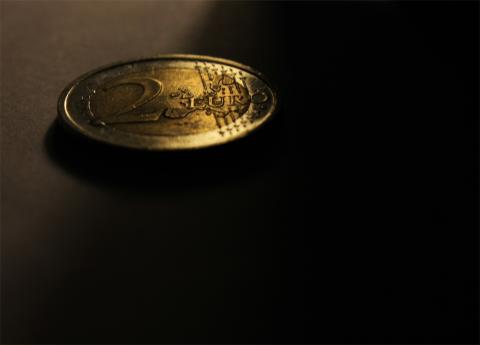Something interesting happened the other day at the EFSF

In the midst of a great deal of inanity coming from Mr Klaus Regling, the head of the European Financial Stability Fund (EFSF), the precursor to the European Stability Mechanism (ESM) that will come ‘online’ later this year (assuming the German Parliament and Constitutional Court do not throw spanners in its works), one of his underlings made a statement that is not at all insignificant.
As you know, the EFSF is the Special Purpose Vehicle that was set up in May 2010 as the Eurozone’s temporary bailout fund; an outfit for amassing the billions necessary to ‘save’ Greece et al from default. As I have spent much energy criticising the structure and rationale of the EFSF I shall desist from doing so here again. Suffice to say that the EFSF gathers the funds necessary for the bailouts by issuing CDO-like, toxic eurobonds.
Presently, the EFSF has raised, or is committed to raising, €192 billion on behalf of Greece, Ireland and Portugal, leaving €248 billion for a second or third helping for these countries plus whatever Spain will be needing in the short run (a need that can only be satiated otherwise by a third LTRO from the ECB). Before the ECB’s Mr Draghi flooded Europe’s banking system with a trillion of liquidity, the EFSF’s bonds were suffering dramatic falls, raising questions about its viability. It was one of the reasons that Mr Draghi decided to turn to the printing presses and risk the Bundesbank’s wrath in throwing all moral hazard considerations to the wind and taking the root toward the Japanese-isation of Europe’s banks. At the very least, his strategy led to the fall in spreads of all Eurozone bonds (except Greece’s of course). Naturally, the EFSF’s own bonds were relieved too.
Mr Regling had this to say on 16 March, during an announcement of the EFSF’s next bond issues[1] (€1.5 billion in 20-year to 30-year bonds on 19 March, €2 billion in six-month bills on 20 March, followed by €3 billion or more in five-year bonds on 22 March): “The euro-area strategy to resolve the crisis is working… Markets have recognized the progress made by both member states and the euro area as a whole. Yields have fallen significantly since November last year for euro-area sovereign bonds and also for the EFSF bonds.” Pull the other one Mr Regling. The only thing the markets recognised was that the ECB was pumping liquidity like there is no tomorrow into insolvent banks in exchange for their reluctant commitment to pass some of this on to the stressed public sectors of the Eurozone, including the toxic EFSF.
None of the above was remotely interesting or new. The nugget of gold was to be found during the briefing in words uttered by the EFSF’s Chief Financial Officer Christophe Frankel. Here is how Bloomberg related his words: “The EFSF is moving to a new system for recouping its funding costs that will charge all countries the same rate. Funds raised will be pooled and no longer attributed to a particular country, and all countries will pay the same rates.”
This is a significant statement. Depending on how it is interpreted, it amounts, almost, to a declaration that the EFSF’s eurobonds may be turning less toxic and more akin to genuine union bonds. Alas, none of the financial journalists present bothered to ask Mr Frankel what he meant precisely. If he meant that Greece, Ireland and Portugal are going to be repaying at the same interest rate, this is only a small step in the right direction. If, on the other hand, he intimated that the donor countries, who are guaranteeing the debt, will be paying the same interest rates in order to provide the EFSF with its funding basis, then the EFSF’s eurobonds are edging toward the status of jointly and severally guaranteed eurobonds. I do not think that the latter was what Mr Frankel meant. But even if he did mean it, much water would have to flow under the bridge before the Eurozone could be said to have acquired its sine qua non; i.e. proper, homogenous, non-toxic eurobonds.
Still, whatever Mr Frankel meant, this small announcement deserved more attention than it got.
[1] Taking together all three bailouts so far, the EFSF will need to projects it will tap markets for €54.2 billion euros in 2012, €37.9 billion euros in 2013 and €33.8 billion euros in 2014.
Image top: Eadaoin O'Sullivan.
